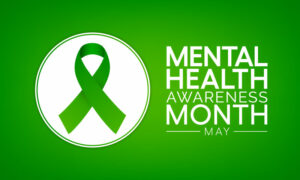Let’s face it! “Sweetness” is loved by all, whether in kindness or food!
As infants, the first preference for taste-development is “sweet.” Sweetened drinks and desserts are fine for most of us in moderation; however, they are among the top foods that provide “empty” calories, meaning they provide none or very little nutritional value. Additionally, desserts are often made with high fat ingredients such as cream and butter, which are also considered “empty” calories. These “empty” calories, along with lack of portion control, are a big reason for the obesity epidemic in this country. For diabetics, sugar consumption must also be controlled to keep blood glucose levels stable. But does this mean that you should stop eating those delightful desserts and wonderful beverages that you truly love? Well, not if you make few lifestyle changes, which include limiting sweets and sugars in your diet. Here are some tips to help you understand sugars and its substitutes.
Most of us are familiar with white sugar which is made from refining sugar cane juice. You may be wondering what the difference is between brown sugar and raw sugar. Brown sugar is the same as refined white sugar, to which molasses is added to give it its brown color. Therefore, brown sugar is processed and it is not the same as gur. Gur is molasses, the syrup left after sugar has been processed. Gur may have some naturally occurring nutrients, but its sugar content outweighs any nutritional benefit gur may have. Raw sugar is another type of sugar that you may have seen in restaurants or stores. It is similar to white sugar, but it is less refined and contains small quantities of nutrients. Brown sugar, gur, and raw sugar still contain the same amount of calories as refined white sugar, without any significant nutrients, and they contribute to raising blood glucose levels.
There are many types of sugar substitutes in the market. Maltitol and Sorbitol (sugars ending in “ol”), for example, provide half the calories of regular sugar. Even though they are called sugar alcohols, they do not contain alcohol. These types of sugars, in quantities greater than 50 grams (or in much lower amounts for more sensitive individuals), may cause a laxative effect. There are other sugar substitutes that are many times sweeter than sugar, such as saccharin (Sweet n’ Low), aspartame (Equal, also used in diet sodas), acesulfame K (Sweet One, also used in Coke Zero type products), and sucralose (Splenda). A relatively new and exciting sweetener on the market is stevia (Pure Via, Truvia). What sets stevia apart from the other sugar substitutes is that it is derived from a plant, and it is also calorie-free. In addition to adding these sugar substitutes to drinks such as tea and coffee, sucralose and stevia can even be used in cooking and baking. This will reduce the sugar content in your favorite desserts, such as cakes and mithais. While sugar sweeteners can help you enjoy sweets without adding calories or influencing your blood glucose levels, some of the sugar substitutes have an after taste. This can be minimized by using half sugar and half sweetener.
Many low-calorie and sugar-free foods including drinks, desserts, candies, mints and chewing gum contain sugar substitutes. You may ask, is it safe to use these alternate forms of sweeteners? Even though some of these sweeteners are artificial, the FDA (Food and Drug Administration) has claimed that these sweeteners are safe when taken in the amounts that are normally consumed by humans in foods; the amount that may cause any health concerns is generally very difficult to meet on a daily basis. See chart below!
*ADI = Acceptable Daily Intake which includes a 100-fold safety factor set by the FDA for consumption of noncaloric sweeteners. *1 pound = 2.2 kg (eg. A 150 pound man (68 kg) would have to have 97 packets of aspartame sweetener a day to go above the recommended daily limit)
** Average amount since Acesulfame-K is commonly blended with 90 mg Aspartame Original Source: American Diabetes Association Guide to Medical Nutrition Therapy for Diabetes, 2005
Most Americans do not realize that the majority of their sugar intake is not from desserts, but is actually from drinks. Keep an eye on the amount of sugar you add to your cup of tea or coffee. Gradually reduce the number of teaspoons of sugar, or experiment with a sugar substitute. Also, cut down on sodas, drinks, and juices, as these are loaded with sugar. Alternatively, drink more water. There are many forms of sugars and sugar substitutes that can add sweetness and have varying effects on blood glucose levels, so read the ingredients and be aware of these terms in the foods you buy. Glucose, fructose (occurs naturally in fruits), lactose (occurs naturally in milk), sucrose (also known as table sugar), corn syrup, high fructose corn syrup (HFCS), molasses (gur or jaggery), agave nectar, and honey are only few of many sweeteners used in foods. These sweeteners not only provide a sweet taste, but also add to your daily caloric intake. Additionally, just like any other carbohydrate, these types of sugars raise blood glucose levels. One way to find “sugars” on your ingredient list is to look for ingredients ending in “ose,” as in fructose and dextrose.
Remember, regardless of what type of “sweetener” you choose, it is the difference between calorie intake (food consumption) versus output (activity level and exercise) that will have an impact on your weight and health. So enjoy your “sweets,” but do so in moderation, keeping portion control in mind. Diabetics should seek the help of their health care provider and dietitian to determine the appropriate types and amounts of sweeteners and carbohydrates, which can be included in their daily diet.
Source: http://www.mayoclinic.com/health/artificial-sweeteners/MY00073




